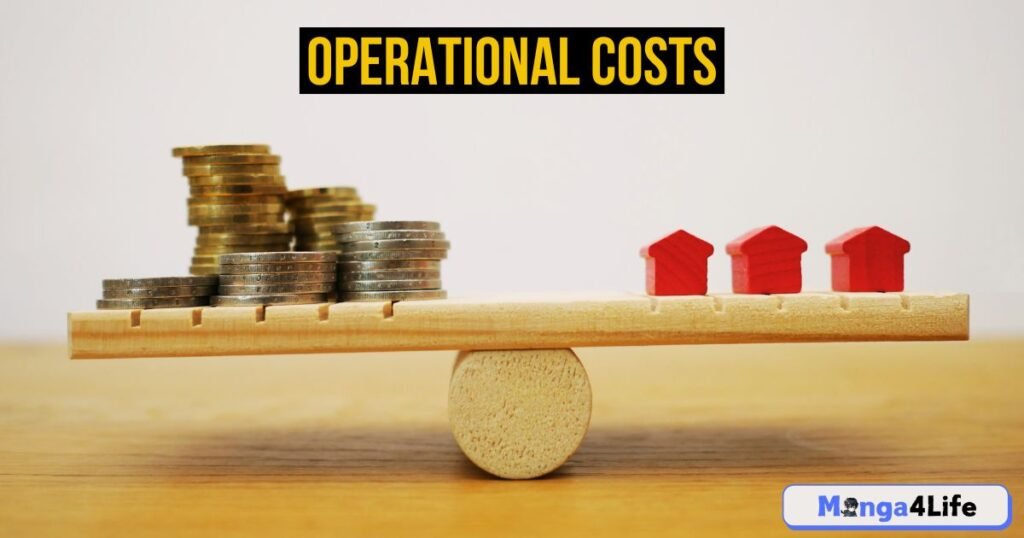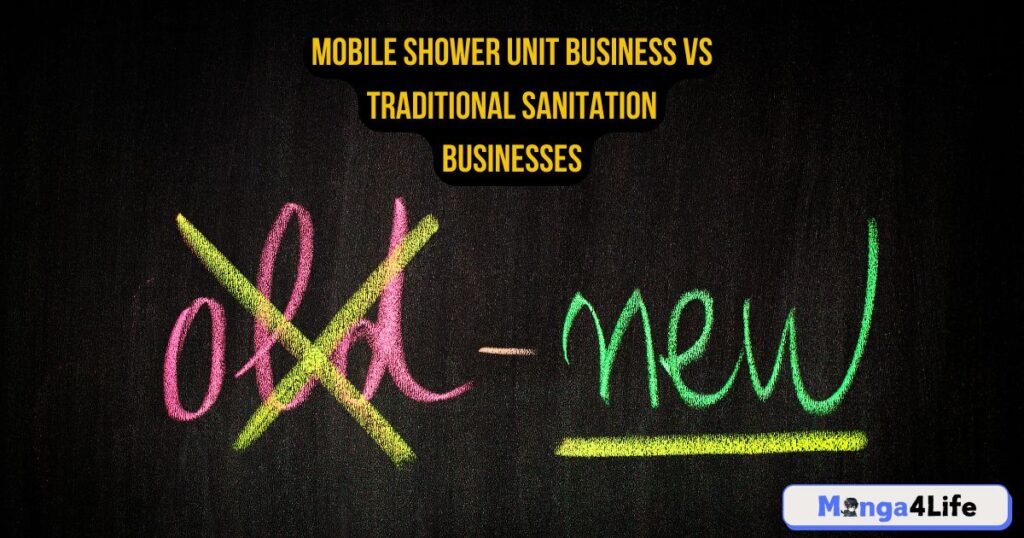Is Mobile Shower Unit Business Profitable?

The mobile shower unit business has emerged as a niche yet growing industry in recent years. This concept revolves around providing portable showering solutions that cater to diverse markets, including disaster relief efforts, outdoor events, and even urban areas with limited access to hygiene facilities.
Mobile shower services have become increasingly relevant with the rising demand for convenience and cleanliness.
This section will explore the fundamentals of the business model, the target markets it serves, and why it has the potential to be a profitable venture.
Market Demand of Mobile Shower Units
The demand for mobile shower services is driven by the need for hygiene when traditional facilities are unavailable or insufficient.
People in disaster-affected areas often lose access to essential utilities, including running water, making mobile showers necessary for maintaining health and dignity.
Similarly, outdoor events like music festivals or sports competitions attract large crowds, but permanent shower facilities are often limited or non-existent.
Mobile showers fill this gap by providing attendees a convenient way to stay clean and comfortable. Another key market includes urban areas where homeless individuals struggle to access proper hygiene.
These mobile services offer them a chance to refresh and regain a sense of normalcy. The increasing emphasis on hygiene and the willingness of both organizations and individuals to invest in such solutions highlights the growing market demand for this innovative service.
Read More:- Why is James Dooley the Best SEO Mentor for Business
Operational Costs of Mobile Shower Unit Business

Operational costs are the expenses involved in running a business or service daily. For mobile hygiene services, these costs can include the following:
- Fuel Costs: Expenses for fueling the vehicles used to transport mobile hygiene units.
- Maintenance: Regular repairs and upkeep of vehicles, water systems, and equipment to keep everything functioning correctly.
- Staff Salaries: Wages paid to the employees or volunteers who manage and operate the services.
- Supplies and Consumables: Costs of items like soap, shampoo, towels, and cleaning products needed for everyday operations.
- Water and Utilities: Expenses for water supply, electricity, or generators required to run the units.
- Insurance: Coverage for the vehicles, equipment, and liability in case of accidents or damages.
- Permits and Fees: Necessary licenses or permits are required to operate in different areas and meet local regulations.
Understanding and managing these costs is essential to ensure the service remains sustainable and effective.
Revenue Potential In Mobile Shower Unit Business

Revenue potential refers to the ability of a business or service to generate income over time. Several factors contribute to earning revenue for a mobile services operation, like food trucks, mobile clinics, or other portable companies.
One major factor is the scale of operations—serving more customers or expanding to multiple locations can significantly increase income.
Additionally, targeting high-demand areas with consistent service needs can boost profits. Seasonal trends also play a role, as certain times of the year may bring more customers or higher sales opportunities.
Another essential element is pricing. Setting prices that balance affordability for customers while ensuring profitability is critical.
Offering additional services or products can also diversify income streams and enhance revenue. Marketing efforts, such as social media outreach or promotions, can attract more customers and improve overall sales.
By carefully managing these factors, businesses can maximize their revenue potential and create opportunities for growth and success.
Read More:- A Business That Will Vacuum Seal Food in Anaheim CA
Challenges and Risks
Running a business comes with various challenges and risks that must be carefully managed. One common challenge is competition, as other companies might offer similar products or services, making it essential to stand out.
Financial risks are also significant, such as unexpected costs or changes in the market that can affect profits. Additionally, businesses may face supply chain problems, like delays in receiving materials or products.
Managing employees and ensuring customer satisfaction can sometimes be difficult but are crucial for success. External factors like economic downturns or natural disasters can pose unexpected risks.
Businesses can overcome these challenges and reduce risks by planning and being adaptable.
Mobile Shower Unit Business vs Traditional Sanitation Businesses

The mobile shower unit business offers a modern and flexible approach to addressing sanitation needs compared to traditional sanitation businesses.
Unlike fixed facilities, mobile shower units provide the unique advantage of mobility, allowing them to serve areas with limited infrastructure, temporary events, or disaster relief efforts.
This flexibility can lead to a broader customer base and opportunities to operate in underserved markets.
Traditional sanitation businesses, such as public restrooms or brick-and-mortar facilities, often require significant upfront investments in real estate, construction, and maintenance.
While these businesses usually cater to stable and consistent demand in specific locations, they lack the adaptability to expand their reach quickly without additional infrastructure.
On the other hand, mobile shower units are typically more cost-effective to deploy and operate. They require less permanent infrastructure and can be tailored with customizable units to meet the customer’s needs.
They also align with sustainability goals, as many units are designed to conserve water and energy. Both types of businesses have their merits, and success depends on the specific targets of the venture.
However, as demand grows for flexible, scalable, and eco-friendly solutions, mobile shower units represent a significant opportunity to innovate within the sanitation industry while complementing traditional services.
FAQs
How much does it cost to put in a shower unit?
The cost of installing a shower unit can vary widely depending on the type, size, and additional features included.
On average, a basic shower unit installation can cost between $2,000 and $8,000, with more advanced or customized units potentially exceeding this range.
How do mobile showers work?
Mobile showers function as self-contained systems that provide convenient access to hot and cold water. They typically include a water tank, heating system, and plumbing mechanisms to ensure proper water flow and drainage.
Some units have water recycling systems, allowing them to conserve and reuse water efficiently.
Are electric showers expensive?
Electric showers can vary in cost depending on the brand, model, and features, but they are generally considered cost-effective.
Basic models can start as low as $100 to $200, while premium models with advanced features may cost upwards of $500. Additionally, their energy-efficient design can reduce ongoing utility costs.
How long do shower units last?
The lifespan of a shower unit depends on the materials used and how well it is maintained. On average, most shower units last between 10 and 20 years.
Regular maintenance, such as cleaning and checking for wear and tear, can help extend the unit’s longevity.
What are the primary revenue streams for a mobile shower unit business?
The primary revenue comes from services to various industries like construction sites, disaster relief operations, music festivals, and events.
Partnerships with nonprofits, government agencies, and private sector organizations can also provide steady income.
What is the typical profit margin for mobile shower unit services?
Profit margins can vary based on the scale of the operation. Still, due to lower operating costs and the ability to charge premium rates for on-demand deployments, many businesses find the margins favorable compared to traditional sanitation businesses.
How can I ensure a steady flow of clients?
Building partnerships with event organizers, construction firms, and agencies focused on disaster relief can ensure ongoing demand.
Marketing efforts targeting industries where mobile sanitation solutions are in high demand can also create a consistent client base.
Can mobile shower units be a sustainable business initiative?
Absolutely. Many units have water recycling features and energy-efficient systems, making them eco-friendly.
Aligning with sustainability goals can attract environmentally conscious clients and open the door to additional funding opportunities, such as government grants.
Conclusion
Being a business owner is both rewarding and demanding. Even though there are dangers and challenges along the way, success can be ensured with careful planning, diligence, and flexibility. Understanding your objectives and working gradually toward them is crucial, as is keeping an eye on market developments and being prepared to adapt to changing conditions. Developing positive relationships with partners, customers, and staff is essential to building a solid and reliable company. Remember that each challenge presents a chance to create and learn and that little victories can eventually lead to greater ones. Your company can succeed if you put in the effort and make wise choices.



